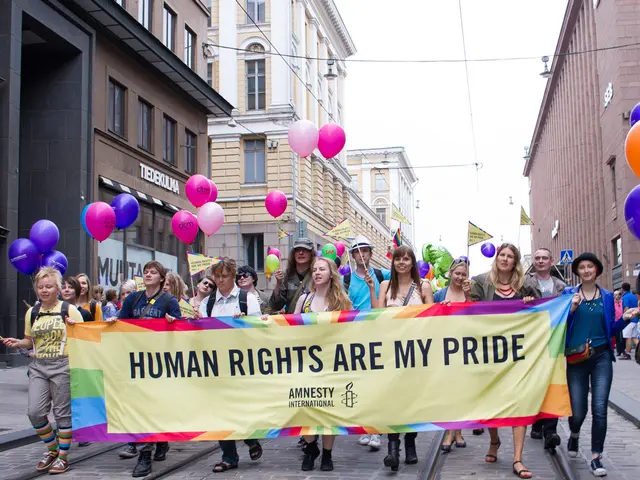Unclassified Document Corroborates Restrictions on Free Expression in Germany - U.S. government findings affirm that Germany has restricted freedom of speech
In a recent human rights report, the US Department of State has raised concerns about Germany's approach to online freedom of speech. The report suggests that German authorities impose legal restrictions targeting speech considered extremist, racist, or hateful, including prosecutions and raids related to online expression.
These actions, according to the report, include arresting and prosecuting individuals whose speech is deemed to incite racial hatred or endorse racism, and requiring social networks to restrict illegal content and report online hate crimes. The US perceives these measures as significant limits on free expression.
The report highlights a close relationship between these restrictions and the fight against antisemitism and hateful speech related to migration issues in Germany. However, critics argue that such laws are used broadly, impacting broader political speech and dissent, including critiques involving migration topics.
The US report also notes cases involving speech about migrants linked to crime, showing the contentious intersection of migration debates, hate speech laws, and online expression. Furthermore, the restrictions relate to government efforts to regulate online platforms under German law, forcing these platforms to monitor, block illegal content, and report hate crimes. Some US officials interpret this as fostering censorship and limiting freedom of speech.
US political figures like Vice President JD Vance have criticized Germany for suppressing political speech, especially from far-right groups, and have viewed the European Union’s Digital Services Act (DSA), which mandates tighter controls on online content, as incompatible with US free speech traditions.
The report does not provide specific details on the extent or severity of censorship in France or Britain. However, the criticism from the Trump administration might be related to the censorship of online platforms in these countries due to the EU requirement to delete hate speech.
It's important to note that the report does not offer solutions or recommendations for addressing the issues of censorship and anti-Semitism in Germany, France, or Britain. Additionally, the report does not mention whether the German federal authorities place too much emphasis on right-wing extremists or downplay the role of immigrants in the fight against the causes of anti-Semitism in these countries.
In summary, the report portrays a conflict between European regulations and US free speech norms, with Germany’s approach to online freedom of speech being a point of contention. The report emphasizes concerns over migration-related discourse, antisemitism, and government oversight of digital platforms, highlighting a transatlantic dispute over online speech regulations.
- Critics contend that German laws targeting hate speech, while purportedly aimed at combating antisemitism and migration-related issues, inadvertently impact broader political speech and dissent, including discussions involving migration topics.
- The US Digital Services Act, which mandates tighter controls on online content, has been viewed by some US officials as incompatible with US free speech traditions, particularly in relation to the European countries' strategies for regulating online platforms and addressing hate speech.








